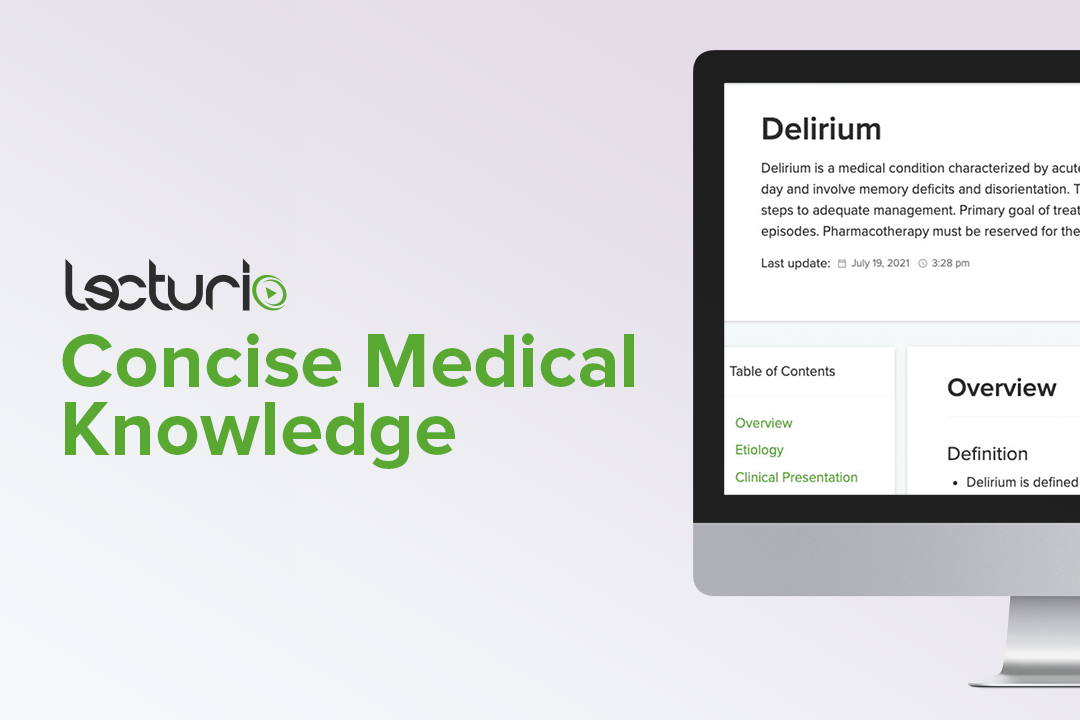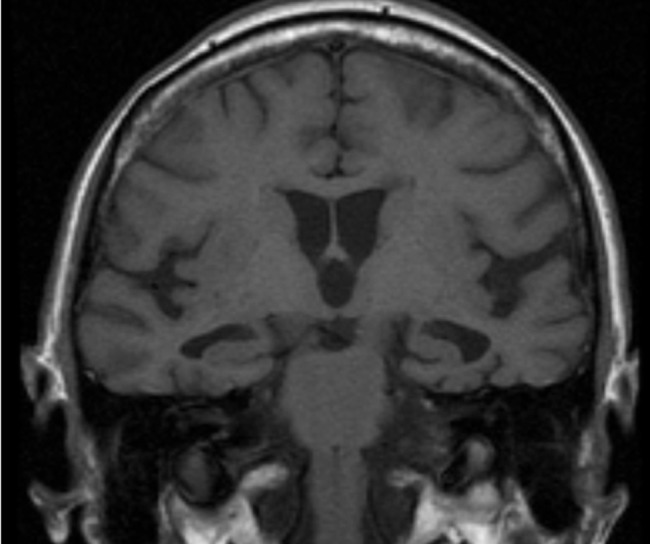Playlist
Show Playlist
Hide Playlist
Assessing Cognitive Disorders
-
Slides Assessing Cognitive Disorders.pdf
-
Download Lecture Overview
00:01 I want to walk you now through a quick test for cognitive disorders, so cognitive disorders result primarily from primary or secondary abnormalities of the central nervous system. They can affect memory and orientation, attention and judgment. 00:18 The mini mental status exam is used to test cognitive function. 00:23 Now this is a great screening tool and it's one that should actually be included in any mental status exam that you do for the patient. It's quick, it's short, it's easy and again it's a screening tool and it will tell you whether or not you need to dig a little bit deeper into determining if there is in fact a cognitive problem. 00:43 But because errors in cognition can come with all kinds of psychiatric disorders even general medical conditions, consider things like depression and psychosis, sometimes poor memory and concentration can be features of these illnesses. 00:57 That?s why it's really important to get some baseline MMSE on every patient you encounter. 01:04 Now, the mini mental status exam, it is also called a Folstein, it's scored out of 30 points and really anyone following below a 26 probably has some problems that need a little digger deeping into figuring out what?s going on there with their cognition. 01:20 So there are a lot of things that you can test for and again this is scored out of 30 points. 01:25 Here?s a chart that helps to summarize a little bit about what you're looking for. 01:30 Things like orientation for the patient, do they know what the month and year is? Do they know where they are? That it's a hospital, what floor they're on or whether it's an outpatient clinic? What city they?re in, etc. 01:42 So you're really gonna score them there based on their orientation. 01:45 You're gonna want them to name 3 objects and register them, meaning repeat them right back to you. You wanna be able to test for their attention by giving them some calculations or spelling quiz. Now before you do this step, it's really important that you know the educational level of your patient so that you can tailor the exam to meet them where they're at. 02:06 You wanna know about their recall so you ask them to repeat the 3 words they had registered 5 minutes previously. And then you're gonna score patients by asking them to name simple objects like a pen and a clock. Ask them to repeat a sentence after you and give them a 3-step command to follow. 02:26 So other things that you're gonna do is see how well they can complete tasks. 02:31 Tell them to close their eyes, have them write a sentence, and have them copy a design which should be 3-dimensional and something that they're able to construct without problem. 02:41 So you?ll score all of these and in summary, the mini mental status exam is testing all kinds of things, orientation, alertness, patient?s language skills, you're testing their executive functioning, their recall, their memory. 02:58 You may also, as part of this exam, throw in some obstructions to see how well they can join objects together. Do they know that an apple and an orange are similar because they're fruits? That?s a good example of an abstract thinker or somebody who?s more concrete is gonna say, well, they are both round, which is not so good of an answer. 03:19 So I wanna tell you about two other quick tests that you can do in terms of checking cognition. 03:26 So sometimes these come up on exams and on the words so they're worth noting. 03:30 Now when you're suspecting a cognitive disorder in a patient, let?s say you've screened them with the mini mental status exam, they didn?t do so well. So you wanna take a one step further or maybe give them a MoCA, the Montreal Cognitive Assessment. This is a brief screening tool, only takes about 10 minutes to deliver and it really tests a variety of things. 03:51 It can test? compared with the MMSE, it tests things that are a little more sensitive to the detection of a mild cognitive impairment. Okay, so there?s a wider range of domains here that you are looking at, including memory and language, attention, also visuospatial things, and executive functions. For example, the MoCA includes little quizzes like drawing a clock, telling it to say a certain time and includes a trail making sequence. 04:21 They test how quickly a person can name words starting with the certain letter within a minute, so it just a little bit more challenging than the MMSE and a little bit more new ones. 04:32 There's also a test called the mini-cog and this is a clock drawing test and also a test of recall. 04:40 And this can be really important and a really quick way to assess whether or not somebody is having some cognitive trouble. The clock drawing test is a great way to really see if people are able to connect the sequence of ideas and strategize and do something in a goal-oriented task driven way. And then with a recall of three words, you can really quickly just see how somebody?s memory is based of, of whether they can recall all three words easily or if it's a struggle to even come up with one. 05:13 So the advantages of the mini-cog again are the high sensitivity for predicting dementia, the short testing time because it really takes only a couple of minutes compared to the mini mental status exam or MoCA which may take about 7-10 minutes each. 05:29 And there is a little bit of diagnostic value that?s limited in the mini-cog because it's so short but it's a good way to just clue you in and as to whether or not there might be a serious cognition problem that you need to dig deeper for. 05:43 So you're familiar now with the few quick screening tools, I?d say for your exam the ones to remember is the mini mental status exam and note that this is important to do not only in patients who may have cognitive trouble but really you should include it as part of your mental status exam for all patients.
About the Lecture
The lecture Assessing Cognitive Disorders by Helen Farrell, MD is from the course Mild and Major Neurocognitive Disorders.
Included Quiz Questions
Which of the following is used for assessing cognitive functioning?
- Mini-Mental Status Examination (MMSE)
- Minnesota Multiphasic Personality Inventory (MMPI)
- Multidimensional battery aptitude
- Statistical hypothesis testing
- California psychological inventory
Which of the following is NOT a component of the mini-mental status examination (MMSE)?
- Intellectual quotient (IQ)
- Orientation
- Recall
- Executive function
- Language
Which of the following is FALSE regarding the Montreal cognitive assessment (MoCA)?
- It is a 20-point test and a score of less than 10 suggests dysfunction.
- It is a screening test used in older adults.
- It is more sensitive in detecting mild cognitive impairment.
- It includes a wider range of cognitive domains.
- It takes approximately 10 minutes to administer it.
Which of the following is TRUE regarding the Mini-Cog test?
- It consists of a clock drawing test which is considered normal if all the numbers are present in the correct sequence and the hands display the correct time in a readable way.
- It also consists of uncued recall of 5 unrelated words.
- The classification of subjects with perfect word recall is based on the clock drawing test.
- It takes a longer time to assess compared to MMSE.
- It has a lower sensitivity for predicting dementia.
Customer reviews
5,0 of 5 stars
| 5 Stars |
|
5 |
| 4 Stars |
|
0 |
| 3 Stars |
|
0 |
| 2 Stars |
|
0 |
| 1 Star |
|
0 |





